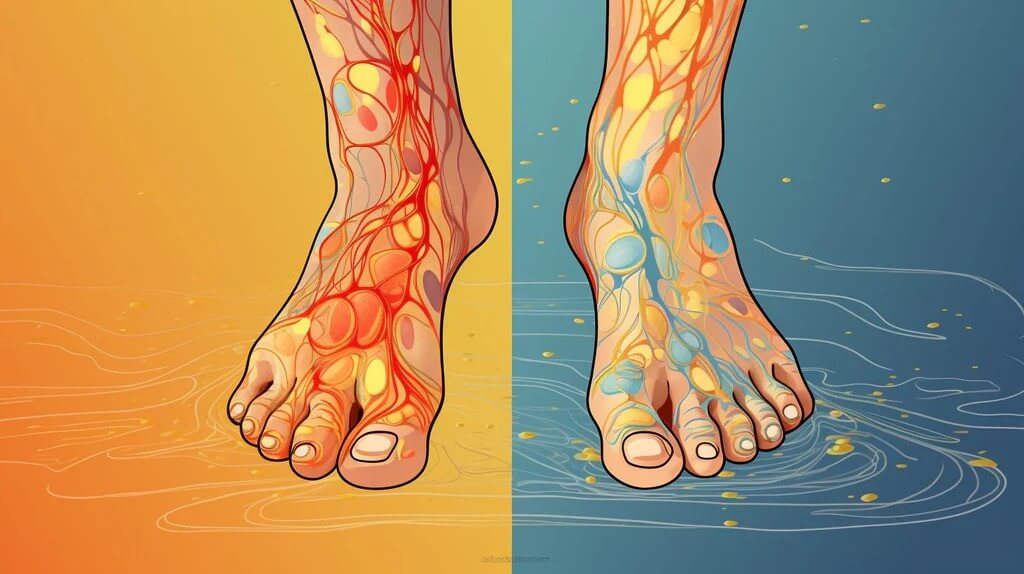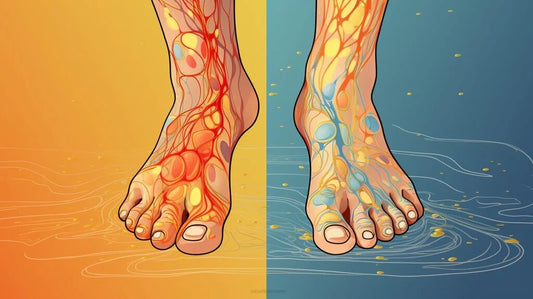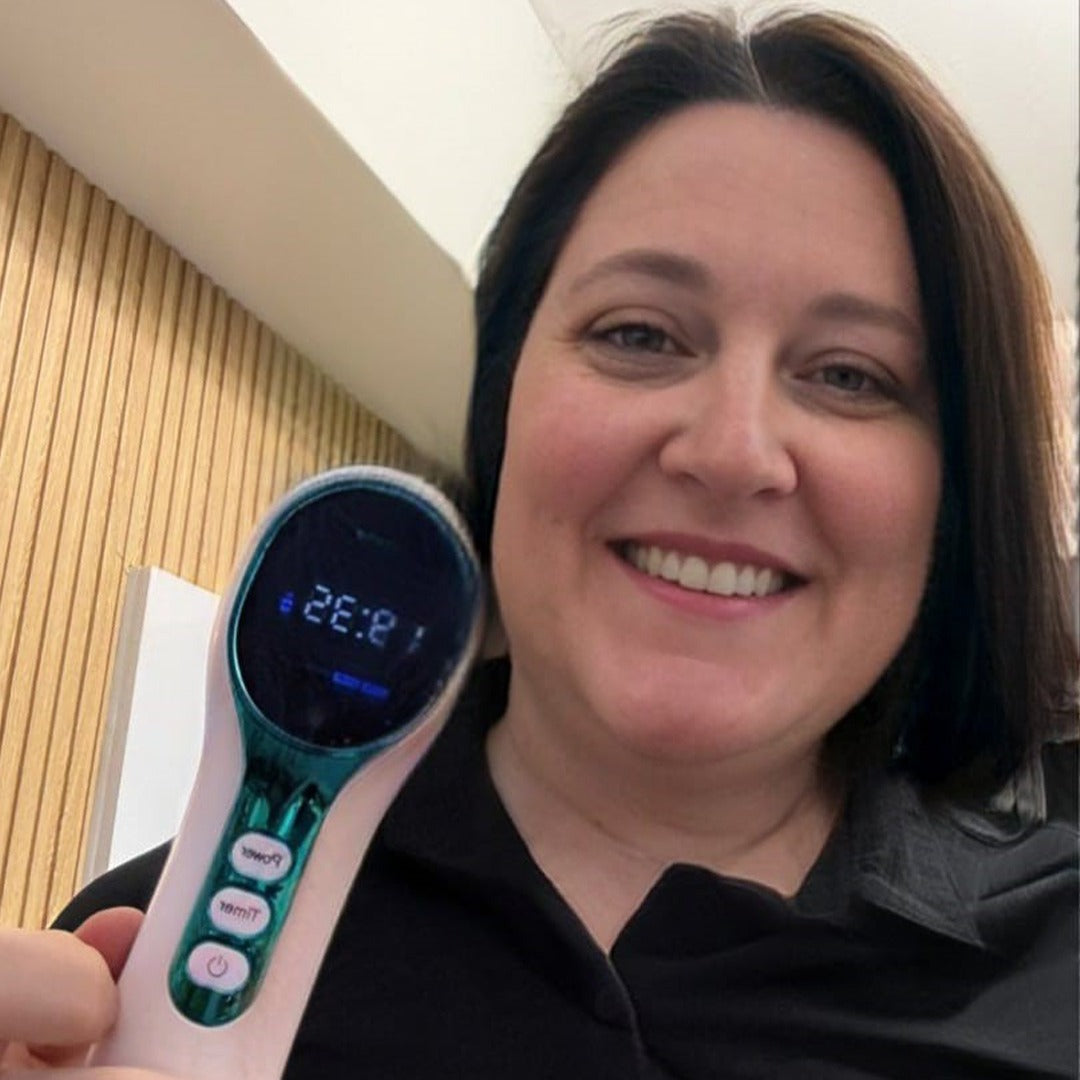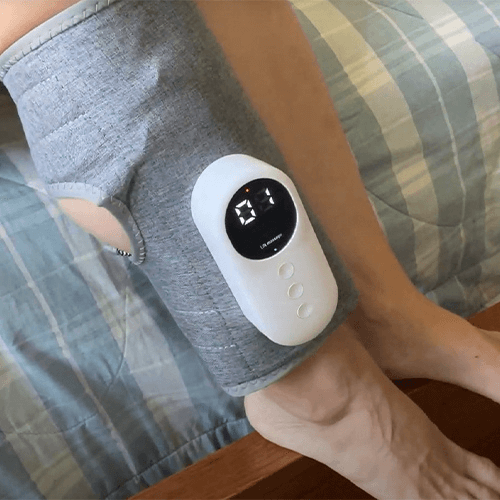Most people associate nerve damage with diabetes, and for good reason.
Around 60% of diabetics will eventually develop a type of nerve damage called peripheral neuropathy, experiencing symptoms like numbness, tingling, burning, or even lightning-like pain.
But what if you have these symptoms and your blood sugar is perfectly fine?
You're not alone!
In fact, two-thirds of people with peripheral neuropathy are not diabetic.
That means millions are struggling with nerve symptoms for reasons that have nothing to do with blood sugar.
So what’s really going on?
Let’s explore the many non-diabetic causes of peripheral neuropathy, and what you can do about it.
What Is Peripheral Neuropathy?
Peripheral neuropathy is damage to the nerves outside the brain and spinal cord.
These peripheral nerves help control sensation, movement, and function in the limbs, hands, and feet.
When they’re damaged, the results can be painful and disabling.
Common symptoms include:
- Numbness or reduced sensation
- Tingling or pins-and-needles feelings
- Sharp or burning pain
- Muscle weakness or cramps
- Balance problems
Although diabetes is a major cause, there are many other triggers worth understanding.
What Else Can Cause Nerve Damage?
1. Medications
Some widely prescribed drugs can damage nerves over time, such as:
-
Chemotherapy drugs like cisplatin, carboplatin
-
Statins (used to lower cholesterol)
-
Blood pressure pills like amlodipine or verapamil
-
Antibiotics like Cipro or Levaquin (used for infections)
2. Alcohol and Nutritional Deficiencies
-
Drinking too much alcohol can damage your nerves.
-
Not getting enough vitamins, like B1 or B12, can also be a problem.
-
People who had weight-loss surgery may not absorb enough nutrients and may get nerve damage.
3. Chronic Diseases and Autoimmune Conditions
Some long-term illnesses can also hurt your nerves:
-
Autoimmune diseases like lupus or rheumatoid arthritis
-
Heart and blood flow problems
-
Liver, kidney, or thyroid problems
4. Infections
These can cause nerve pain too:
-
Shingles
-
Lyme disease
-
HIV
5. Stomach and Food Problems
-
People with celiac disease or gluten sensitivity can get nerve damage from too much inflammation.
-
Medicines for heartburn like Prilosec or Nexium can lower important vitamins and hurt nerves over time.
6. Toxins and Chemicals
-
Some medical dyes used in scans can damage nerves.
-
Being around pesticides, strong cleaning products, or heavy metals can also be harmful.
7. Injuries or Surgery
-
Sometimes surgery can lead to nerve pain, even if nothing went wrong during the operation.
-
If you’re lying in one position too long during surgery, it can put pressure on your nerves.
Can Nerve Damage Be Treated?
Some people believe there’s no way to fix nerve damage. But that’s not true for everyone.
Yes, badly damaged nerves take time to heal, and some may not fully recover.
But many people can get better with the right help.
Here are some things that may help your nerves:
-
Vitamin B1 (Benfotiamine) – helps protect nerves
-
Vitamin B12 (Methylcobalamin) – helps nerves grow back
-
R-alpha lipoic acid – reduces nerve pain and swelling
-
Light therapy (PBM) – uses special lights to help cells heal
These treatments don’t work overnight, but many people feel better over time.
Key Takeaways
-
You don’t need to have diabetes to get nerve damage.
-
Many things like medicines, alcohol, infections, or vitamin problems can cause it.
-
Some foods and even medical scans or surgeries may be the reason.
-
There is hope! Some nutrients and therapies can help nerves heal.
-
Talk to a doctor who understands neuropathy and ask about these treatments.
You’re not alone, and with the right steps, you may start feeling better.








